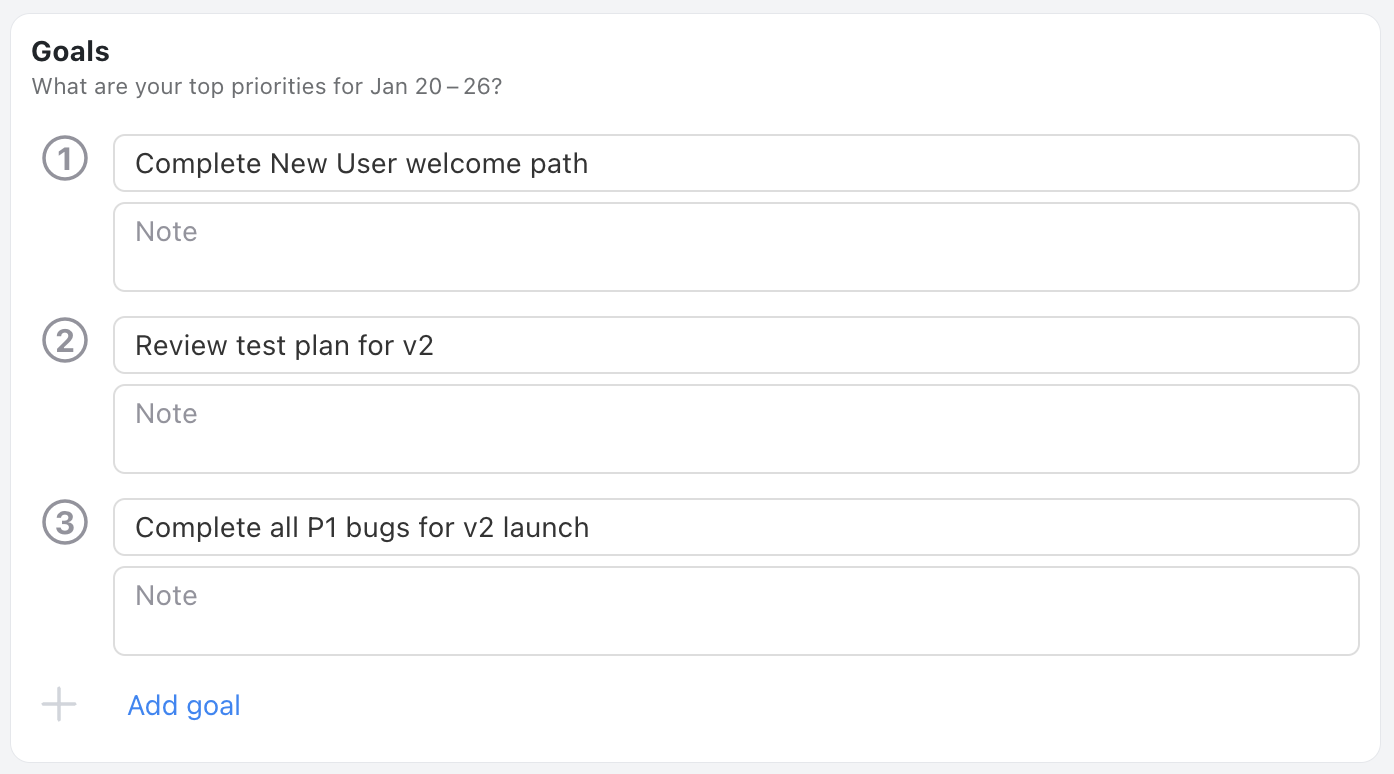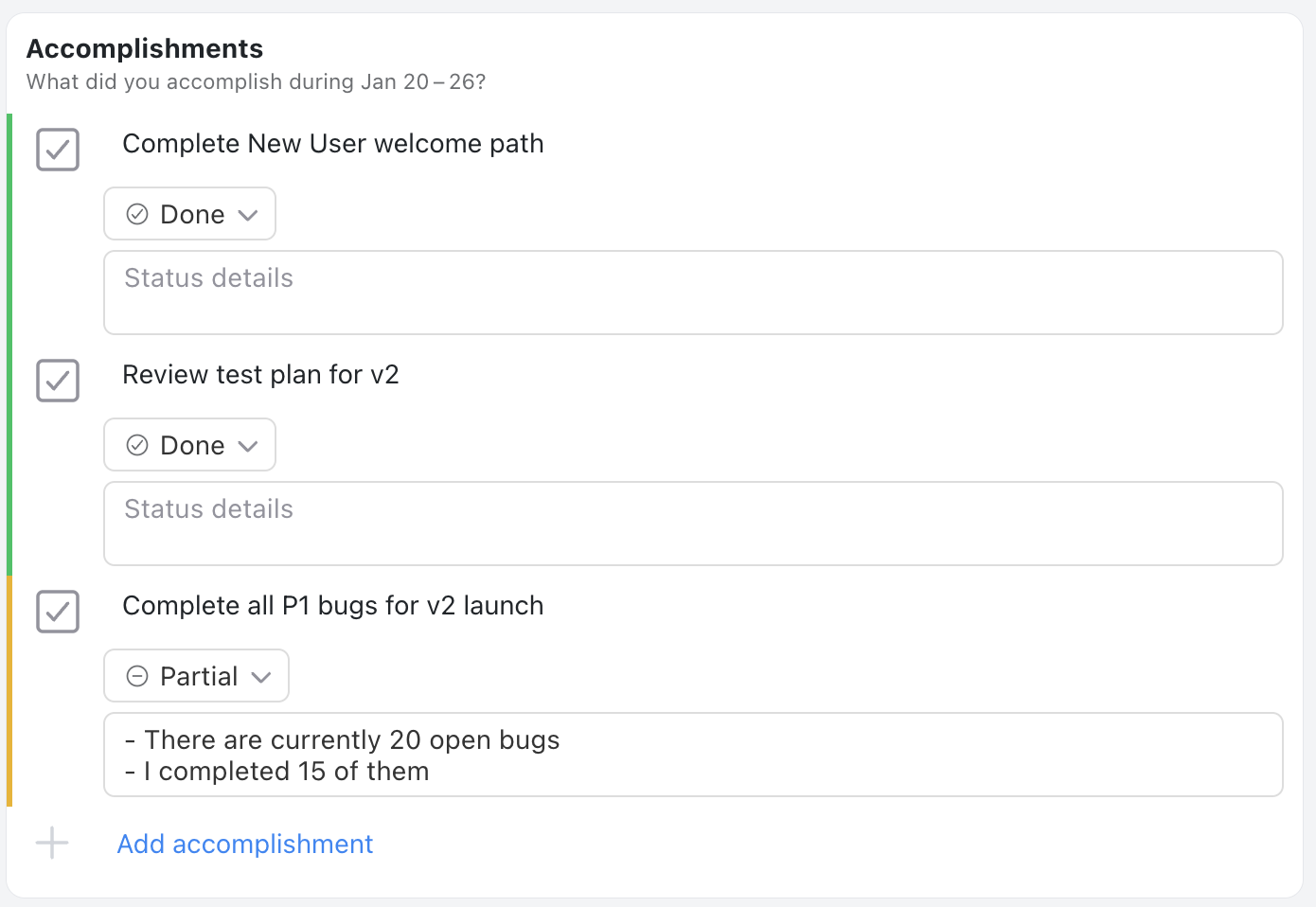Built in Accountability
Kutano provides built in accountability. When someone says they are going to do something, the resolution of the item is tracked so it is easy to see if everything got done or if some things slipped through the cracks. All this is done without the manager needing to nag people for updates.
The Weekly Cycle
Before the start of the week, each person lists their top priorities for things that they will accomplish that week. This is handled in a section on their status update form.

At the end of the week their status update form automatically includes the items that they said they were going to accomplish. They simply mark down the status of those items and add any additional notes.

This not only makes the process very easy, but also automatically ensures that the status is tracked and connected so that things are not forgotten.
The status sheet can then be used to see the status for all of those items across the entire team.

Team Accountability
This illustrates a subtle but important aspect of the benefits of using Kutano.
When you make a commitment to tasks that you are going to complete during the week this is not just a commitment to yourself. And it is not just a commitment to your manager. It is a commitment to your team. You are motivated to get things done because you told the entire team you are going to do them and you know that everyone will see exactly what happened with those items.
This is a powerful motivating factor for people and much more effective that simply getting pressure from their manager.
Over Promising
Does not getting things done necessarily mean a person is not productive? Not necessarily. A common trait of many strong employees is the tendency to over promise on what they are going to accomplish. It is easy to start the week with lots of ambitions and expect to get much more down than you are actually able to accomplish.
This can easily be observed by looking at the status sheet.
If a person is consistently over promising they are potentially creating issues for other people that are depending on the results of tasks that they said they would complete. Over time, Kutano helps them to see this and allows them to set more realistic expectations.
Under Promising
Under promising can also be an issue. Often employees will commit to very little other than making progress towards some longer term objective.
This is also easy to see using the status sheet. By looking at the key accomplishments for an employee over a longer span of time it is clear when their are relatively few significant accomplishments.
People Set their own Goals
At the start of the week, each person specifies their top priorities for things they will get done in the upcoming week. Because they set their own goals they feel like they are achievable and everyone else is able to see what they are working on.
This is important in reducing potential friction with their manager. The manager does not need to bug them throughout the week to make sure they are getting the work done. They have already committed to the items and know that they need to finish them. If something does not get done it is because they were not able to complete something that they expected to finish. The employee feels more empowered and trusted and the manager doesn't need to spend time nagging.